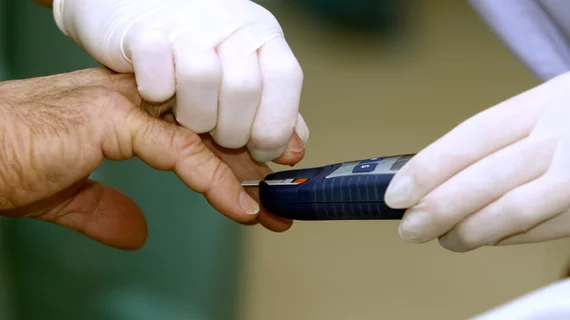mHealth provides more benefits to diabetes patients adept at self-management
Mobile health (mHealth) is better utilized by users who are more engaged in self-management, according to a Norwegian research team with findings published May 21 in JMIR mHealth and uHealth.
mHealth tools could assist patients with chronic conditions manage their disease, but the apps can only help if patients use them. In this study, researchers examined the correlation between a patient’s level of acceptability of mobile diabetes apps and her ability to self-manage.
“mHealth interventions developed for diabetes self-management have shown some effects, although little is known about the full potential benefit of using mobile diabetes apps,” wrote first author Astrid Torbjornsen, MSc, of Oslo Metropolitan University in Norway, and colleagues. “The acceptability of the provided mobile-based technology is important for their use and for its implementation into practice. However, only sparse knowledge exists about factors that make mobile technology acceptable for persons with type 2 diabetes.”
The study included 75 patients with type 2 diabetes, who either received a mobile phone with the diabetes app or received the app in addition to health counseling from a diabetes nurse. Researchers used the Service User Technology Acceptability Questionnaire (SUTAQ) to evaluate five domains: perceived benefit, privacy and discomfort, care personnel concerns, kit as a substitution and satisfaction. Additionally, the Health Education Impact Questionnaire was used to assess participants level of self-management. Thea team used these two questionnaires were to identify the correlation between domains and patients’ level of self-management.
Researchers found only one domain—skill and technique acquisition—was associated with perceived benefit. This suggests that the more comfortable patients are with technology, the more likely they were to see the app’s benefit.
“As hypothesized, we found a linear relationship between higher self-management and a positive experience of the mobile diabetes app as being beneficial for health care,” concluded Torbjornsen and colleagues. “However, after adjusting for age, gender, and frequency of use, this association was no longer statistically significant, except for the domain skill and technique acquisition. Furthermore, according to our findings, the use of the app turned out to have the strongest association with app acceptability.”

